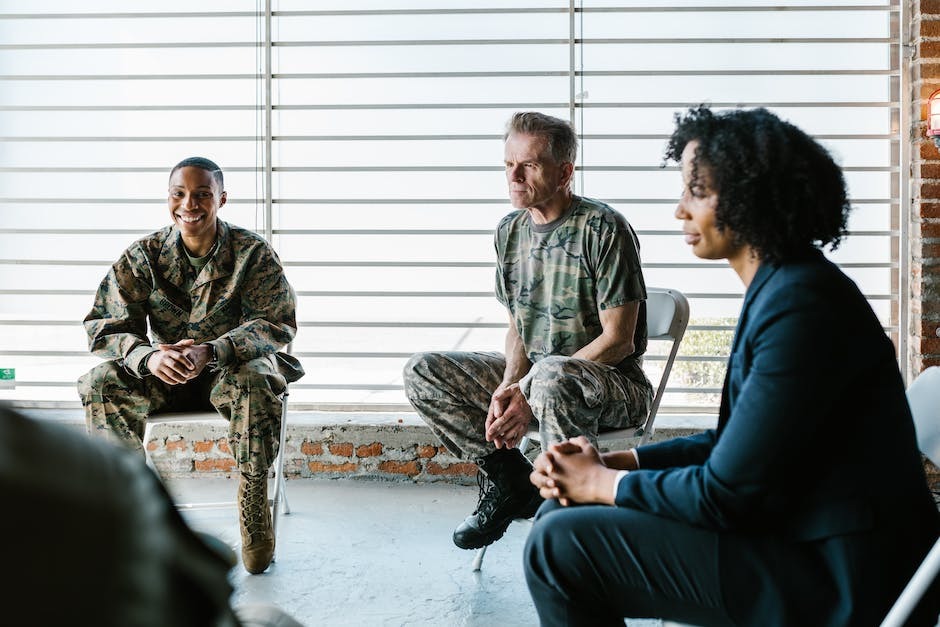The veteran community is unique when it comes to healing and recovery. However, it is often found that veterans do not feel comfortable reaching out or seeking help. This is because of military stigma and not feeling strong enough if they admit to needing services. Often veterans do not see the benefits of services because many other individuals in treatment cannot relate to their experiences.
Veterans deal with violent and traumatic experiences, leading to mental health issues or substance abuse concerns. Some of these are post-traumatic stress disorder (PTSD), depression, anxiety, post-traumatic injury, and substance use disorders (SUDs). Thus, it is extremely important for veterans to be accounted for in their mental health and recovery journeys.
Signs of Struggle
When trying to understand someone, especially a veteran who has undergone such drastic experiences, it is important to recognize signs of them needing help. These signs include:
- Depersonalization
- Self-idealizations
- Struggles
- Impulse disorders
- Struggling with an evolving worldview
- Strained relationships
- Struggle with life transitions
Trauma and PTSD-Specific Signs
Many members of the veteran community find themselves developing traumas or PTSD, specifically. The signs and symptoms of trauma and PTSD include:
- Re-experiencing: Flashbacks, bad dreams, and frightening thoughts
- Avoidance: Staying away from places, events, or objects that serve as reminders of the experience or trauma or avoiding thoughts or feelings related to the traumatic event
- Arousal and reactivity: Being easily startled, feeling tense or “on edge,” having difficulty sleeping, and having angry outbursts
- Cognition and mood: Trouble remembering key features of the traumatic event, negative thoughts about oneself or the world, distorted feelings of guilt or blame, and loss of interest in enjoyable activities
It is essential to also look out for these signs and consider seeking help to combat this trauma in a specialized and supportive way.
Veteran Treatment at Roots Recovery
Once these signs are recognized, seeking help is the next step. At Roots Recovery, many programs are implemented to support the veteran community. Some of these services include chronic pain programs, individual therapy, and group therapy.
Chronic Pain Program
Chronic pain programs at Roots Recovery help support veterans to heal from mental health struggles, chronic pain, and life transitions. This is also useful for the veteran’s family; our chronic pain program provides support to them as well during treatment.
Individual Therapy
At Roots Recovery, we provide multiple options for individual therapy, including:
- Eye movement desensitization and reprocessing (EMDR)
- Prolonged exposure therapy
- Cognitive processing therapy
- Trauma-focused cognitive-behavioral therapy (CBT)
Individual therapy at Roots Recovery is a client-centered approach specifically designed around the individual’s needs. Therefore, their symptoms and concerns are treated directly with a specialized approach.
Group Therapy
Group therapy options at Roots Recovery include:
- Acceptance and commitment therapy (ACT)
- CBT
- Buddhist psychology and mindfulness groups
- Trauma psychoeducation groups
How Does Trauma Psychoeducation Help?
At Roots Recovery, trauma psychoeducation is part of the group therapy protocol and brings in family and loved ones to further their understanding. Since the veteran community often feels isolated and unsupported due to this military status, trauma psychoeducation helps the group and the individual understand their struggles on a deeper level. Likewise, this group approach helps decrease the stigma around seeking help.
Specifically, psychoeducation introduces “enable-ism” to the group. This concept involves how certain behaviors or actions can trigger trauma responses, mental health struggles, or substance abuse. In this group setting, all members develop a deeper understanding of their trauma. This helps the veteran gain a greater understanding of their mind and decreases the feelings of loneliness that may arise.
This is aligned with trauma-informed care, which helps to understand how practices and events may trigger a traumatic response. Understanding the event helps everyone in the group understand how the individual perceives and processes it. Once the understanding is solidified, psychoeducation works to help the individual decrease the effects of their trauma if and when exposed to triggers.
The Importance of ‘Group’ at Roots Recovery
At Roots Recovery, many of the group-focused therapies or services aim to create a supportive community. In understanding each other, each individual has a better opportunity to heal. Creating a supportive community eliminates isolation while in recovery and treatment.
Likewise, it is also essential to create a supportive community outside of treatment. Family, friends, and other loved ones are significant communities to have as support. With the trauma psychoeducation program at Roots, this community is brought into the veteran’s treatment.
Developing a community creates a greater sense of understanding and support to encourage the individual in treatment. The “group” is especially important when thinking about life after treatment. Since transition is a struggle for many veterans, having as much support both going into and coming out of treatment is very important.
Treating traumatic experiences with care and support, especially among the veteran community who may have violent and traumatic memories, is of utmost importance at Roots Recovery.
Here at Roots Recovery, we aim to support unique groups of individuals seeking treatment and care. The veteran community is one of the specialized groups we treat. Through both specialized, individual treatments as well as group treatments, we aim to create a supportive and encouraging community for veterans who may feel lonely throughout the process. Specifically, with a group-focused therapy and treatment plan, such as our trauma psychoeducation program, we hope all members develop a greater understanding of the veteran’s trauma and processing. This way, they can tend to their needs as they go through treatment and eventually transition back into the world. To learn more about our programs, call Roots Recovery at (562) 473-0827.



